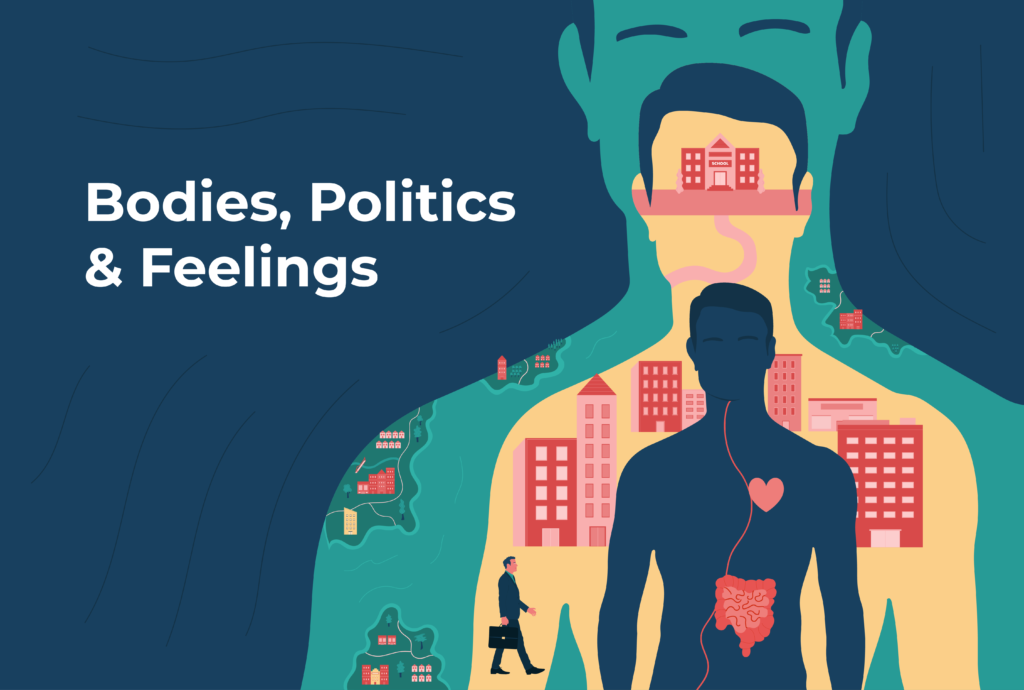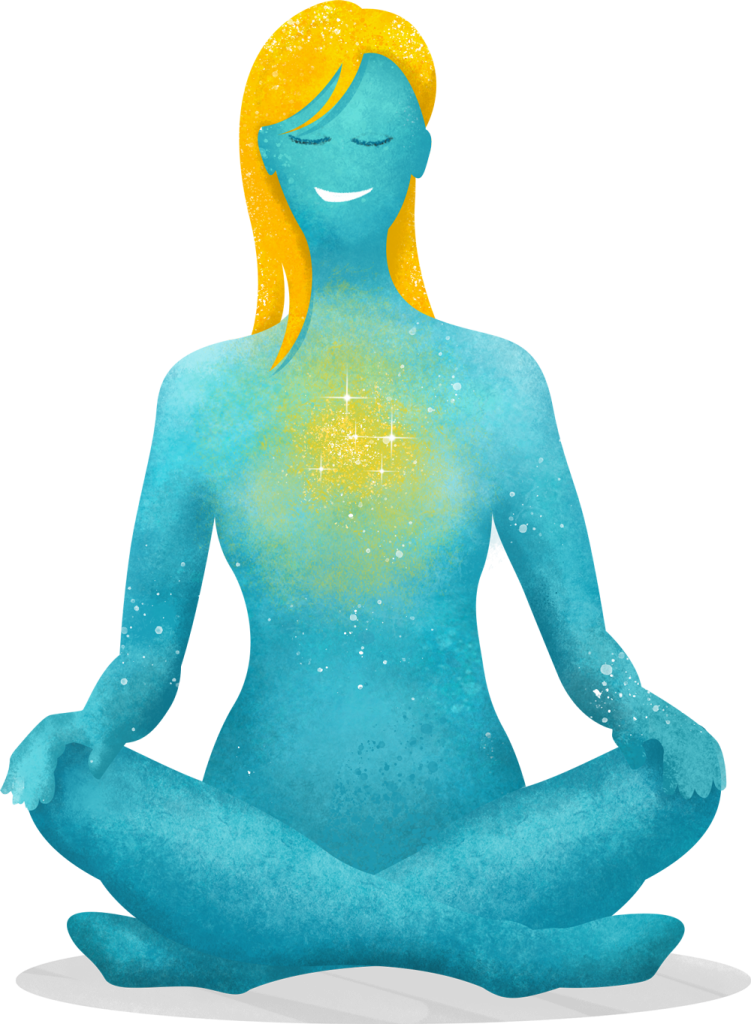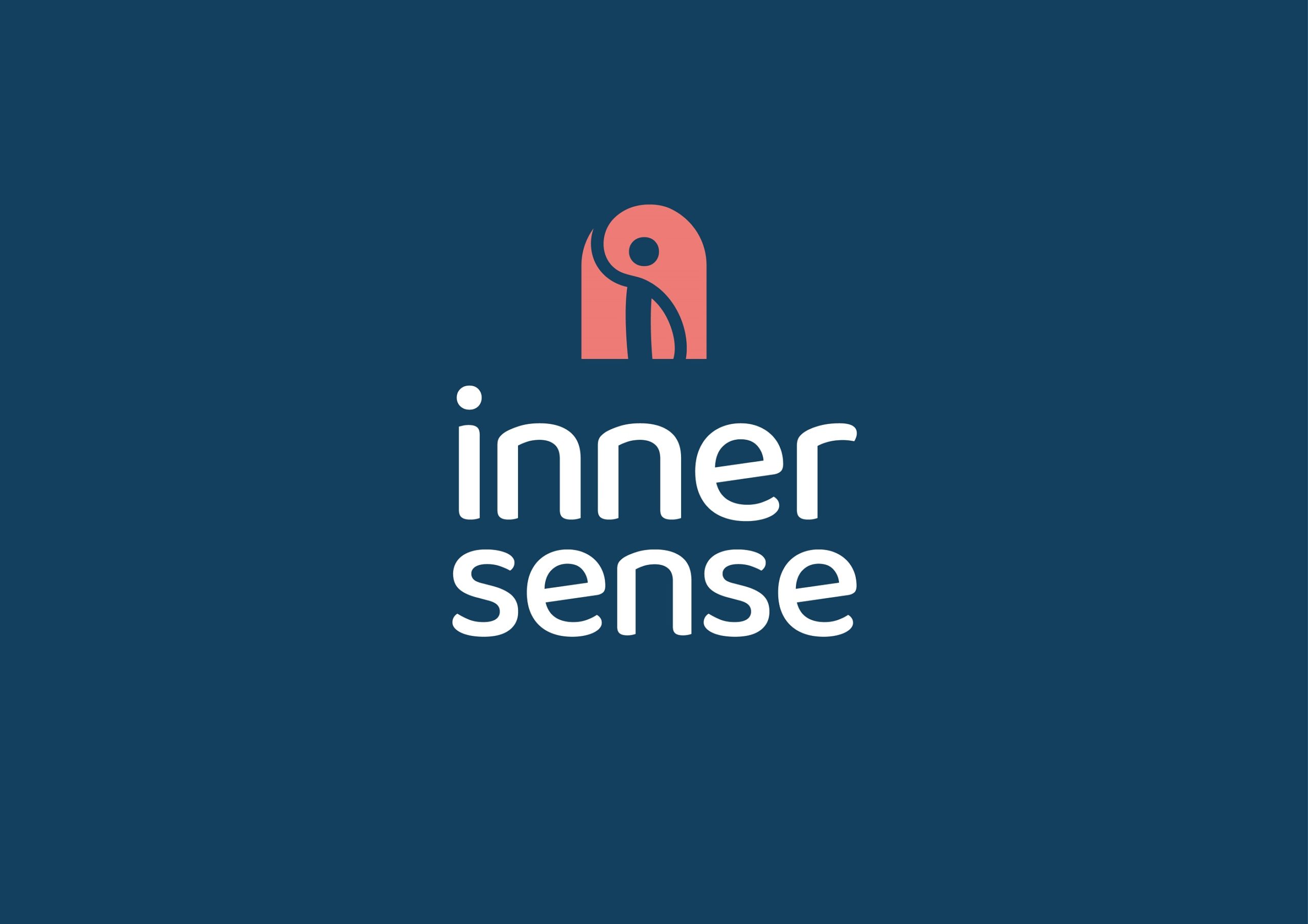Given how divisive and polarised politics is these days, and how politicised many topics, including climate change and gender identity have become, Professor Manos Tsakiris’ work seems timely. A Professor of Psychology at Royal Holloway University in London and director at the Centre for the Politics of Feelings, he’s dedicated to helping us understand more how emotions and feelings can influence politics, and how politicians can use this to influence us. We caught up with Professor Tsakiris for an eye-opening chat, including how interoception underpins his work. Here’re a few of our key takeaways.
Watch the interview in full at the bottom of this page
How we react to our own bodily signals is something we’re taught by someone else, interoception can help us tune into what our bodies are really telling us
As babies, we have a limited survival repertoire: when we’re in discomfort, we cry. We rely almost entirely on caregivers to work out what we’re upset about, but without much to go on, their response isn’t always accurate.
Let’s say a baby is crying because it’s in pain, but the caregiver is convinced it’s hungry. The baby will get even more frustrated because it’s survival needs aren’t being satisfied and, if this becomes a long-term pattern, the baby may start to incorrectly associate a certain feeling with a certain need – in this case, pain equals food.
This association can become ingrained as we grow older and affect how good or bad we’re able to read our own bodily signals and the emotions of others. This is why interoception is so important because it allows us to tune into the signals coming from our bodies and correctly identify what they mean. It’s also why it’s important to continually hone this skill – our feelings and emotions are fluid. How we react to different situations changes throughout our lifetime, from being a baby, to adolescence and old age.
Humans aren’t rational, we’re relational
Contrary to the more mainstream belief that we’re rational beings, relationships with others are at the heart of what it means to be human. From the day we’re born to the moment we take our dying breath, we’re social animals – we need other people and live for them.
So while we all have our own unique experience of what it means to be us, we shouldn’t think of that experience as being isolated or distinct from the experience of other people. Understanding how other people make us feel, and how we make them feel, gives us insights into the choices we make, including our political decisions.
How our bodies and feelings can influence our politics (and how populist politics can take advantage)
Over the past 10 years, the world has felt increasingly unstable for many people. The financial crisis, the rise of gig economy (and job insecurity) and climate change. Then came the pandemic, which demonstrated the instability of the world even more starkly.
An unstable world creates feelings of vulnerability, in individuals and across societies, shaping our political decisions. We search for conditions that will diminish our anxieties and stressors. Populist politics takes advantage of this. Promising us a quick fix to how we feel by pointing the finger at the most immediate and sensational news items such as immigrants or the rise in ‘woke culture’. The irony is, migrants forced to seek out pastures new because of untenable living conditions in their home country is actually another symptom of global uncertainty rather than the cause of problem itself.
Democracy is good for your health
GDP (gross domestic product) is usually used as a measure of the success of a country. However, there may be a more accurate indicator. A major study published in 2019 1 that spanned 170 countries and more than 36 years found the presence of democratic governance was linked to lower mortality rates. This effect was seen across many causes of mortality including cardiovascular disease, transport accidents and cancers. Evidence like this suggests we should shift focus from financial development to political development when it comes to the health and wellbeing of a nation, because democracy is a more important factor than GPD.
Climate change could fuel hate speech
In a recent study 2 looking at how extreme weather conditions affect us, researchers found that very high and low temperatures result in an increase in hate speech on Twitter. Just as extreme temperatures demonstrate an instability of the Earth’s climate, they also cause instability in our own bodies. We may feel less in control and experience more discomfort, either from being too hot or too cold.
If we’re not tuned into where these feelings are coming from, an internal feeling of discomfort may be experienced as frustration and expressed outwardly in unhelpful ways, like through hate speech. This is pertinent, as climate change creates more extreme temperatures.
Our unconscious social biases can hijack our perception
Black Americans are twice as likely to be shot while they’re unarmed, compared to white individuals. A disheartening reality that also plays out in the lab. Numerous studies have shown white participants find black people more threatening, and even misperceive a benign object as a weapon when in the hands of a black person.
We’ve spoken before about the brain being a prediction machine and this is another example. Through stereotypes, prejudice and even jokes, it becomes engrained in culture that different races are associated with different social behaviour. Our brain uses this information to shape our perception of reality. When this happens on a widescale, it can cause serious social problems. Therefore, it’s so important to bring together people of different backgrounds, skin colour and economic statuses so we can learn from each other and understand our differences and similarities.
Critical feeling – an important skill you may not have heard of
Critical thinking is the ability to think clearly and objectively about an issue and come up with a considered judgement. It’s an important skill that people should learn and develop, but just as vital is critical feeling. This is the ability to feel and become aware of your emotions (which itself takes time, practice and effort) then reflect on these feelings and understand their origin. Why am I feeling anxious, why am I scared?
It’s also important to apply this principle when interacting with other people. Why are they feeling what they’re feeling? And is there any political or historical context that might be causing this? Critical feeling can help us all to better understand our feelings and those of others and the cause behind them, ensuring we’re able to respond in a considered way rather than making kneejerk reactions.
Find out more
You can watch our full interview with Professor Tsakiris below:
For more information on Professor Tsakiris’ work, head over to his website www.politics-of-feelings.com. And for more insights and tips on how to improve your overall wellbeing, please check out the Inner Sense YouTube channel, you can also sign up for our newsletter.



